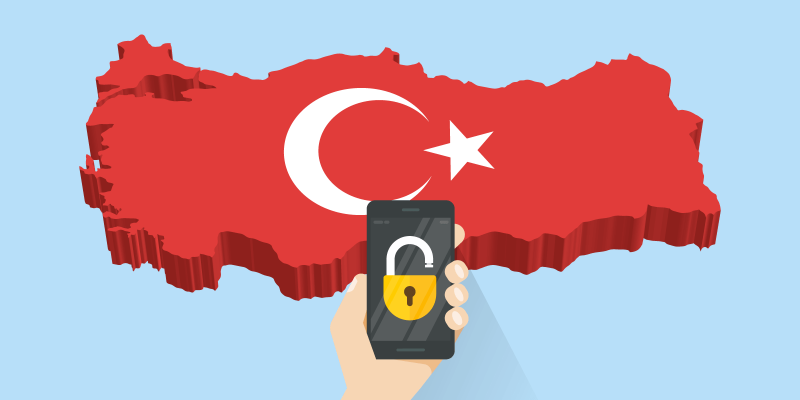Washington, D.C. — A new report from the Center for American Progress highlights how government censorship in Turkey has caused troubling developments in Turkey’s media landscape, leading to greater distrust and more misinformation being spread on social media.
Overall, distrust in the Turkish media has reached crisis proportions, with fully 70 percent of Turks viewing the media as dishonest, according to a survey conducted by the polling firm Metropoll from May 24, 2018, to June 4, 2018. The survey consisted of face-to-face interviews with 2,534 people in 28 provinces.
“Pervasive censorship has understandably driven Turkish citizens to more independent online outlets and social media platforms for their news, but these sources are themselves often rife with misinformation,” said Max Hoffman, associate director of National Security and International Policy at CAP. “These changes have critical implications for the country’s domestic politics, as our polling shows that those who get their news online are more critical of President Erdoğan, even after controlling for other factors. It is a real threat to his grip on power.”
The growing prevalence of misinformation may further aggravate partisan divides and weaken accountability, the report finds. It has already undermined Turkey’s response to the coronavirus pandemic. The Turkish government’s muzzling of the media has also harmed the nation’s security by debilitating public oversight of foreign policy decision-making and creating fertile ground for Russian influence operations.
At the same time, this media crackdown may have profound consequences for Turkey’s domestic balance of power, as it has driven many citizens toward the more open world of social media and thus created new vulnerabilities for President Erdoğan.
A detailed examination of Turkey’s changing media landscape points to three priority areas for Turkish and international actors who seek to support democratic governance and anchor Turkey within the transatlantic alliance:
- Grant-making programs should work to fund Turkey’s local newspapers, which command nearly one-fifth of total newspaper circulation in the country and offer a frequently overlooked opportunity to support independent journalism.
- Turkish and international actors need to counter the swelling tide of misinformation on social media—without opening the door to further government censorship.
- Grant programs can also target their resources more effectively by earmarking funds for reporting rather than commentary.
Read the report: “Turkey’s Changing Media Landscape” by Andrew O’Donohue, Max Hoffman, and Alan Makovsky
For more information on this topic or to talk to an expert, please contact Sam Hananel at gro.ssergorpnacirema@lenanahs, or 202-478-6327.
Source: Center for American Progress



